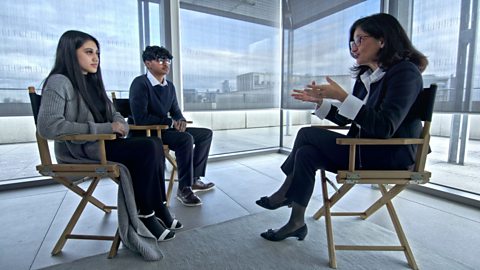Trishan:
I am Trishan, and I'm 14 years old.
Rena:
I am Rena and I'm 16 years old.
Trishan:
We are here at the Barbican Conservatory in London.
Rena:
To get some answers to some of the really big questions.
Paul:
I am Paul Nurse, a biologist and a Nobel Prize winner. You might know from your studies in biology that cells are building blocks of life. I'm going to talk about how that idea is fundamental to biological science. Through looking at cells we can begin to get closer to answering the question What is life? And I mean get close to, not answer it fully.
Trishan:
What does biology tell us about what it means to be alive?
Paul:
All life on our planet is based on the cell. It's the basic fundamental unit of life and cells are chemical and informational machines that grow and reproduce, and they also have genes which determine how those cells work, which are copied every time a cell reproduces. And because those genes are not always copied precisely, they lead to variability, and that provides the basis for evolution by natural selection and all life evolves by natural selection. So that describes what life is. And, you know, it's just totally extraordinary. It explains all the diversity of life from bacteria through plants, through animals to ourselves.
Rena:
So where does chemistry come with in all of this?
Paul:
Well, living things they’re chemical machines. So chemistry is central, but it's a very complicated chemistry. There's thousands of different chemical reactions going on in a tiny little cell all the time, and they form the basis of life. But for life, one of the really important atoms is carbon. And in fact, all living things use carbon in a variety of different ways. And did you know carbon was made in the centre of stars? So quite literally, we're made of stardust.
Rena:
So, what separates humans from other living things?
Paul:
Well, you know, we're related to everything around us. You know, it's a tree of life. If you look at a tree and you see it comes up and then divides into all these branches. We happen to be one of the twigs on that tree. And these plants are another twig on that tree. And microbes like bacteria or yeast are yet another twig. But we're all related. We're all actually connected. I like to think about these plants and all these other living things as our relatives that we have a special responsibility for.
Trishan:
How similar do you think our cells are to the cells of plants?
Paul:
Well, you know, it's surprising if we look at these plants around us and ourselves, we look very different. But if we were to take a microscope and look at the edge of a growing leaf or look at our skin and look at the cells growing there, you know the cells would be remarkably similar.
Trishan:
So do you think we could use technology to reverse our irresponsible actions?
Paul:
We invent technologies. We invent ways of living, which sometimes can damage the rest of the biosphere, their living plants, animals and fungi, bacteria that are around on planet Earth. And we have to be careful about that because we rely on them and we interact very closely with them. And if we damage them, we actually damage ourselves and not only are they our relatives, but we're completely dependent upon them.
Rena:
So, can we just like escape to another planet?
Paul:
Well, I suppose we could. But you know, this is quite a nice planet that we are living on. So, I think it's rather easier if we just make this one still liveable on and look after it. But there is the other question, is there life on other planets? And of course, we don't know the answer to that question. But, you know, if there is, I think it'll be based on the same principles of life on this planet that we've just been talking about. I suspect they're going to be very similar.
Rena:
I think the most important thing to take from this event is how to link science to the whole world because we're not separate.
Trishan:
I gained a whole new insight on how we interact with the plants and other living organisms around us. We may fully never be able to understand how life works, but with Paul's explanation, we did get a step closer.
Biologist and Nobel Prize winner Paul Nurse talks about what biology tells us about life.
He shares his passion for understanding cells and how, as the building blocks of life, they can help us get closer to answering the question, what is life?
Paul talks about the thousands of different chemical reactions going on in a tiny little cell, forming the basis of life.
He explores the importance of carbon to all living things and how it was made in the centre of stars, meaning we are literally made of stardust.
He concludes by highlighting how certain technologies can damage the biosphere and if we damage our environment we actually damage ourselves, as we depend on other organisms for survival.
This short film is from the BBC Teach series Lessons with Leaders.
Teacher Notes
Things to check your students know:
- What climate change is.
- What is meant by evolution and natural selection.
- What a cell is.
- The meaning of the word ‘diversity’ in the context of cell biology.
- What a biosphere is.
Possible talking points:
Science:
- How does chemistry link to cells?
- Why does Paul believe we are ‘related’ to plants and animals?
- Paul thinks science links to the whole world, can you explain what he means by this?
- How do cells contribute to evolution/natural selection?
- Paul describes cells as ‘chemical and informational machines’ . Is this a good way to describe a cell? Why?
- ‘All life on our planet is based on the cell’. To what extent do you agree?
Climate change:
- Paul says ‘we invent ways of living that sometimes damage the living biosphere’. Can you give examples? Do you have ways of living that damage our planet? What are they?
- ‘If we damage [the biosphere] we damage ourselves…because we’re dependent on [it]’. What does Paul mean by this? Do you agree? Why?
- What technology do we have that can help us take care of our planet? What do you do every day to help us take care of our planet? What steps can you, your family or your school take to do more?
Follow on tasks - You could ask students to:
- Science: create their own definition of what a cell is, does and why they are important. Make sure they use subject specific terminology and be ready to share ideas. Students could self/peer assess.
- Geography/citizenship: draw up an action plan for the ways in which a school can limit the damage done to the planet. Identify the ways in which a school causes damage and research ways to undo this damage or reduce the damage in future, consider how cost may impact the practicality of these plans. Students could present their action plan to the class and share ideas, or even present their plan to the headteacher for consideration.
Curriculum Notes
- This short film can be used to help stimulate discussions around topics such as: cells and climate change.
- This video may apply to topics covered in science or geography/citizenship lessons.
- It is most suited to 14-16-year-old pupils across the UK in developing their understanding of the function of cells in science at GCSE level.
- In England, Northern Ireland and Wales it is relevant to GCSE science (combined or single science biology) in Scotland it is relevant to National 5 in biology.
For discussions on climate change:
- In England it is relevant to geography and citizenship.
- In Scotland it is relevant to National 5 in geography.
- In Northern Ireland and Wales it’s relevant to ‘Learning for Life and Work’ CCEA in lessons on local and global citizenship.

More from the series Lessons with Leaders:
Cressida Cowell - The importance of play. video
Author and illustrator Cressida Cowell talks to two students about the importance of play in unlocking your creativity.
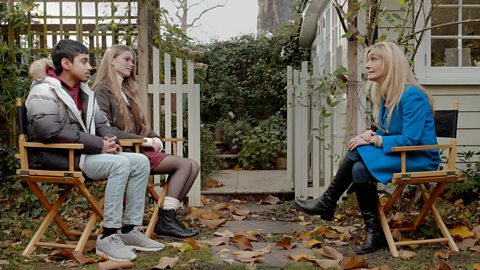
Kumi Naidoo - How to be a good activist. video
Kumi Naidoo talks about how he got involved in activism and how to be a good activist.
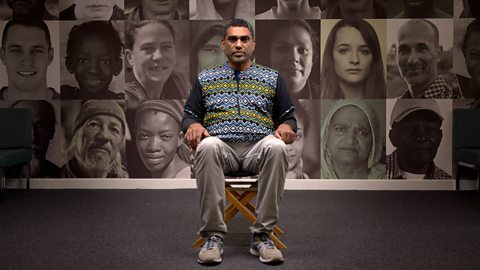
Rich Roberts - Learning from failure and luck. video
Nobel Prize winning scientist Rich Roberts talks about learning from failure and luck.
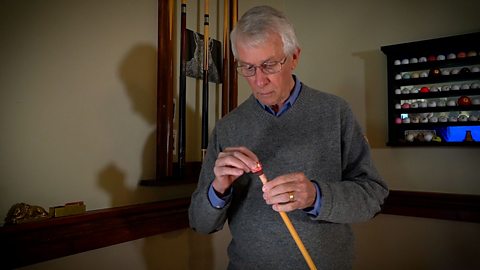
Jocelyn Bell Burnell - Why unconscious bias matters. video
Professor Jocelyn Bell Burnell talks to two students about why unconscious bias matters.
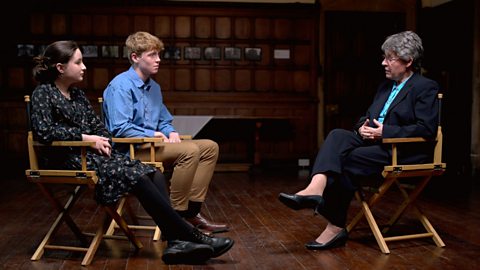
Venki Ramakrishnan - The race in science. video
Scientist Venki Ramakrishnan explains the vital role played by competition and cooperation in science.
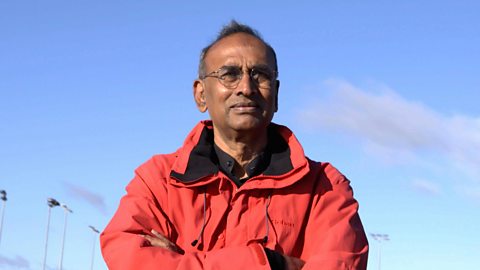
Benjamin Zephaniah - Finding your voice. video
Poet and novelist Benjamin Zephaniah talks about the importance of finding your voice.
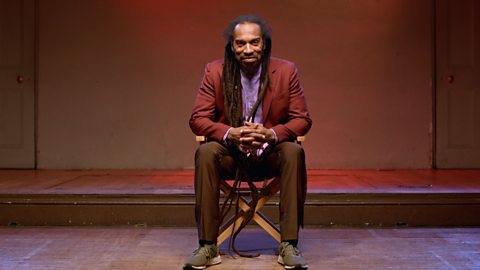
Minouche Shafik - How to be a good citizen. video
Former Deputy Governor of the Bank of England Minouche Shafik talks about why we take part in society.
